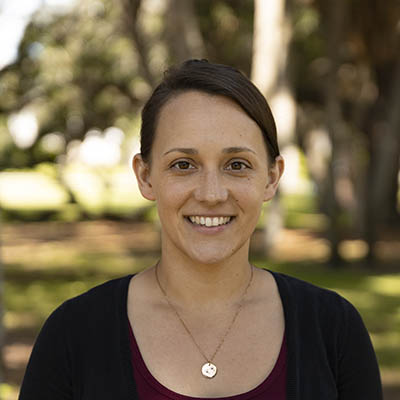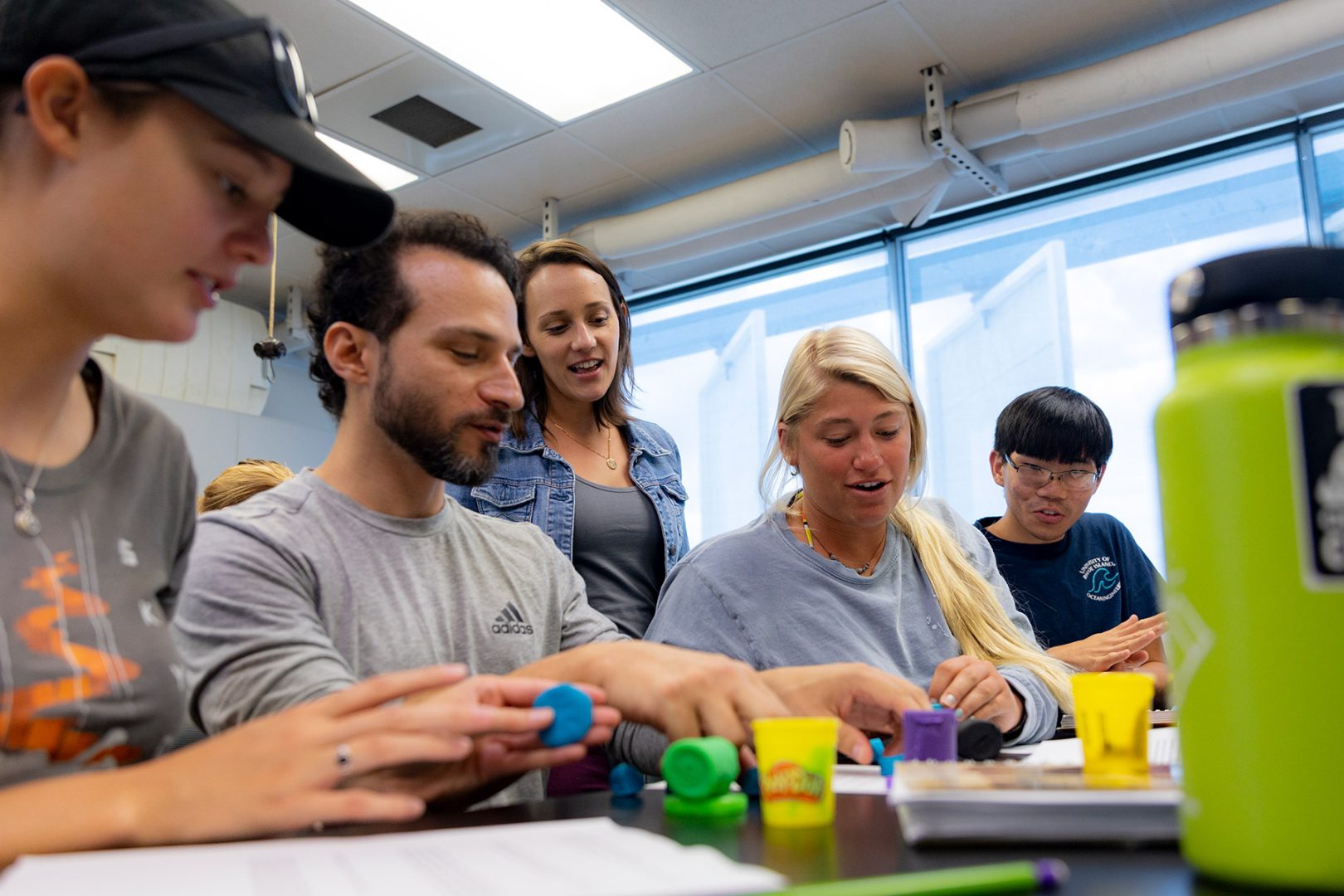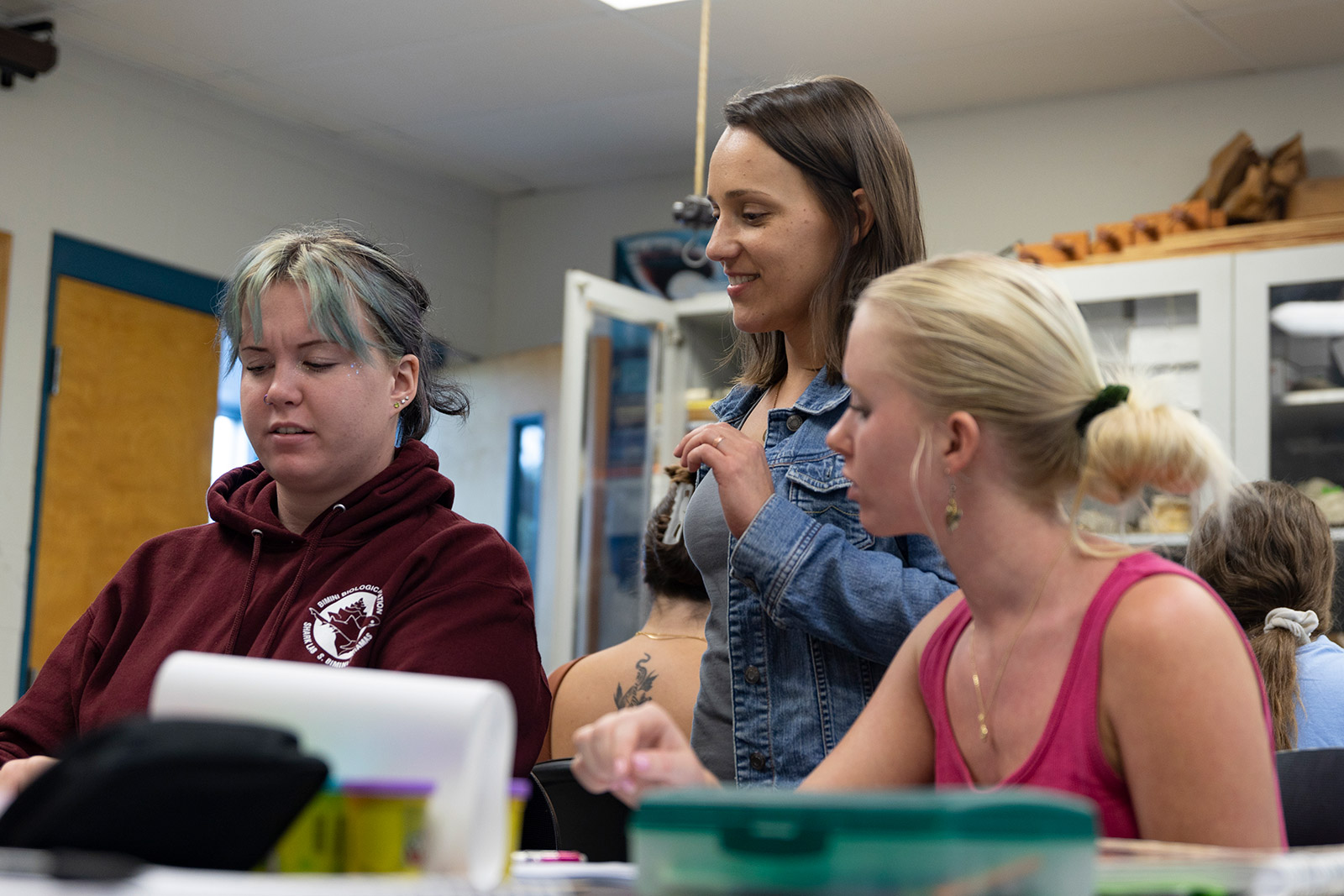As a child, Chelsea Korpanty, Ph.D., a new assistant professor of marine science at Eckerd College, would go on fossil hunts with her parents—scouring the Midwest for marine fossils embedded in outcrops that were covered in water 350 million years ago.
Her parents were public school teachers with passions for geology, so her enthusiasm for rocks could be both innate and nurtured.
“I really like the 125,000-year-old Pleistocene fossil corals that I studied from the Caribbean,” Korpanty says. “That was my first field research project as an undergraduate. If you stop to look at the rocks, they tell an interesting story.”
Much of Korpanty’s research and passion are devoted to looking at fossilized coral and marine invertebrates in tropical and deep-water coral reefs. Her work investigates what marine communities were like in the past and how they have responded to environmental changes over time. Fossils reveal species diversity and abundance, which can be compared to analogous living systems today, Korpanty says.

Assistant Professor of Marine Science Chelsea Korpanty, Ph.D.
Thea Rind, a first-year student from Summit, New Jersey, was enthralled when Korpanty explained that students who selected her lab for the First-Year Research Associateship program would be categorizing and studying 13,000-year-old coral and invertebrate fossils.
“I have always been fascinated by corals,” Thea says. “So when I heard Dr. Korpanty talk about her work, I thought she was incredibly knowledgeable, and the project seemed so interesting.”
Thea spends one day a week in Korpanty’s lab, and she also takes the professor’s Geological Oceanography lecture and lab twice a week. “It just worked out that way with my schedule, but I am so grateful because I’m able to build a closer bond,” Thea says.
Korpanty is happy to be in a small-college environment where she can work to foster in others the passion for paleoecology that sent her around the globe as a student.
Her initial dream was to be an architect who dabbled in geosciences. She attended Cornell College—fully expecting to go on to graduate school for architecture. But her first geology class dramatically changed her trajectory. She took many immersive geology field trips around the Midwest and eventually took trips abroad to Curaçao and New Zealand.
After graduating with a B.A. in geology and another in studio art, Korpanty headed to the University of North Carolina Wilmington to see where the geosciences would take her. She dug even deeper into the marine invertebrate fossils by doing her master’s-degree study in shallow systems of mollusks and seagrasses, both living and dead assemblages, to view the change to the environment over time. When she was ready to earn her Ph.D., she headed toward one of the world’s most famous coral environments to study at The University of Queensland in Brisbane, Australia.
Korpanty completed her doctorate in four years and headed to the MARUM Center for Marine Environmental Sciences at the University of Bremen in Germany to conduct postdoctoral research. But her desire had been to return to the U.S. to teach—preferably at a small college—ever since she taught her first course at the University of North Carolina Wilmington.
This semester Korpanty also teaches Earth Systems History, an upper-level course that considers the planet’s 4.6 billion years through fossils, map making, tectonic theory and more. She’s even planning to have future class sections travel to Florida quarries so they themselves might search for marine fossils—in the same way that set her on the path to becoming their instructor.
“The assemblages of marine species have changed a lot over geologic time as the global climate and local environments have changed,” she explains. “The fossil record provides us the opportunity to look at these changes—to understand the stories of why, how and where marine communities are assembled the way they are today. Figuring out these stories fascinates me.”














